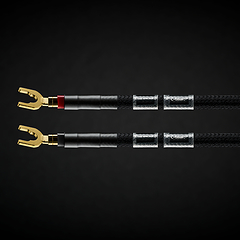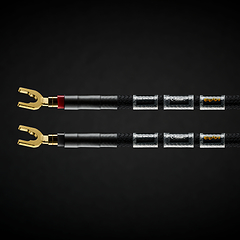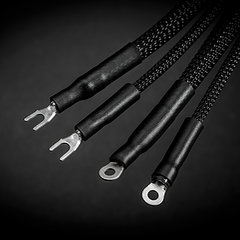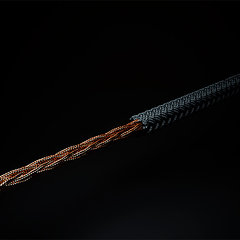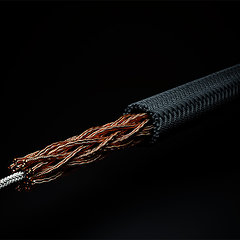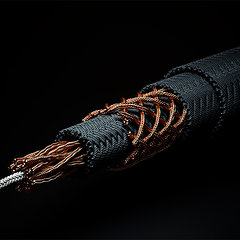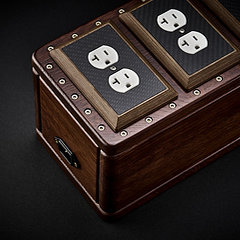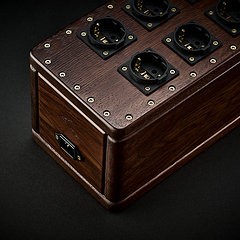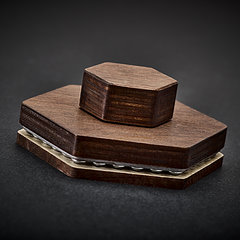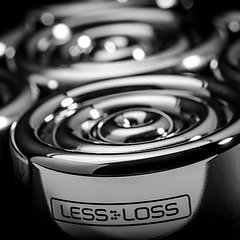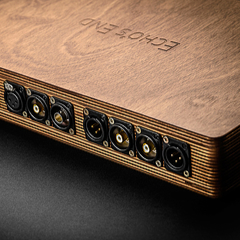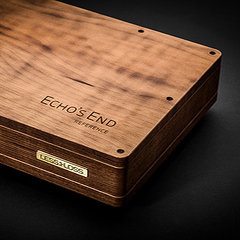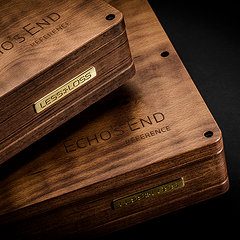 666
666
C-MARC™ RCA InterconnectsC-MARC™ XLR InterconnectsC-MARC™ Speaker CableC-MARC™ Classic Power CableC-MARC™ Stellar Power CableC-MARC™ Bulk Wire and CableFirewall ModuleEcho's EndBindbreakerBlackbodyPower distributorBlackGround DIYBlackGround 6x/10x Power Base
DFPC Original (legacy)DFPC Signature (legacy)DFPC Reference (legacy)DFPC Series (legacy) (all)Digital Cable (legacy)Firewall (legacy)Anchorwave (legacy)Homage to Time (legacy)Tunnelbridge (legacy)Laminar Streamer (legacy) All Because of the sheer number of reviews, you can sort them above to quickly find LessLoss products of interest.
 "...sounds almost as good as the vinyl disc on the best of analog systems."
November, 2017, author: Marek Dyba
"Echo's End offers exceptionally long, full reverb tails, which is usually the domain of tube devices."
"I listened to a lot of acoustic recordings with piano, string instruments, acoustic and classical guitars and in each of them this Lithuanian transducer had to offer even more than my LampizatOr. The one element that makes music different is that it seems to be fuller, and above all more natural, more 'right.'" "I did not expect from this non-tube device - the naturalness, or actually even the organic nature of the sound. It's a feature I associate with vacuum tube based circuitry. And yes, I did happen to encounter it in some transistor digital sources, but only at a significantly higher price level." "Let's just take a look at Michel Godard with Monteverdi's music and the variations on the theme (A trace of grace), which is absolutely gorgeous on vinyl, and from the digital version it always seemed a bit worse / poorer, though still very good. Playing from the file via USB input, Echo's End for the first time in terms of rendering spatial aspects and tone quality, sounds almost as good as the vinyl disc on the best of analog systems. The Noirlac Abbey's courtyard opened up to a huge size, the breadth of the sound was freely circling its distant corners, each clean, saturated sound filling the air, all complementing the palpability of large, precisely arranged apparent sources. All this together made a huge, realistic sounding panorama." "Echo's End has shown that the resolution, the amount of information that can be extracted from recordings, also puts it in a really high league of digital sources, as does serious separation. In the case of the above mentioned recording, it was a great pleasure to listen to the sound of individual instruments. The insight into the color, the texture, the dynamics at the micro level was unique. This makes each instrument singular and all very realistically convincing." "Another similarity to the well-known vinyl version of this recording was the softness of the sound, sometimes called analogue nature. In the digital world, it is associated with the sound of DSD files rather than "harder" PCMs. As in the case of the analogue disc, this "softness" of the sound is due to the softening of the attack phase, but without loss of speed. So when we have sudden, strong impulses of the leading edges of instrument attack, we still jump in our listening position, even if it is a tad lighter than other transistor DACs. Thanks to this, Alan Dawson's drumming performance was excellent on We're All Together for the First Time." "One more feature that is worth mentioning, and which only audio devices with refined power feature, is a very black background. The latter comes from a lower level of noise and distortion, of which we may not be aware, but which do lower the sound quality and enjoyment of listening." "So I plugged in a Firewall 5X module between the power cord and the Echo's End and it quickly confirmed that the sound of this device was partly obtained through the use of the onboard Firewall modules. In the simplest terms, all of the above-described features of the DAC sounded deeper. This made no noticeable negative impact, but the sound was made even cleaner, more organic, more colorful (not to be confused with colored), more illuminated - just more real. Adding a second "5X" further aggregated this effect, though I felt rather less than the first one. The playback was even smoother, more consistent, less choppy, but still fast, live sounding and energetic." "Looking at the form of this device, and even at its interior it is difficult to guess how much it has to offer. You have to accept the lack of switches, displays and indicators, or the need to physically disconnect or turn off previously used sources. However, one quickly accustoms oneself to the elegance of this nicely made wooden box, especially since the sound of Echo's End easily convinces." "It is clean, organic, smooth with amazing tembre, with beautifully rendered acoustics (where it's in the recording), but also dynamic and fast. Regardless of the type of file being played, Echo's End offers sound normally associated with DSD files - smooth, saturated, plastic, sharply focused, with a gentle but fast, powerful attack. It's one of those devices whose sound creates a spell from which it is difficult to break. It became hard to point out specific advantages over competitors, because overall I felt I just want to listen to the pure flow of the music."  ...better than any DAC I've had in my system...
|
- Products
- Power Cables
-
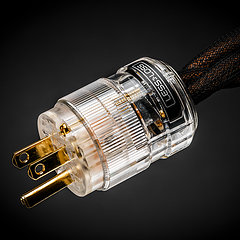 C-MARC™ Prime
The must have foundation for any sound system today.
From
$
486
C-MARC™ Prime
The must have foundation for any sound system today.
From
$
486
-
 C-MARC™ Classic
The unique super-cable power cord everyone's talking about.
From
$
1148
C-MARC™ Classic
The unique super-cable power cord everyone's talking about.
From
$
1148
-
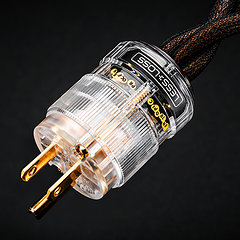 C-MARC™ Classic Entropic Process
The peerless, advanced Classic masterpiece.
From
$
1934
C-MARC™ Classic Entropic Process
The peerless, advanced Classic masterpiece.
From
$
1934
-
 C-MARC™ Stellar Entropic Process
The crown jewel for highest performance power connection.
From
$
2450
C-MARC™ Stellar Entropic Process
The crown jewel for highest performance power connection.
From
$
2450
-
- Loudspeaker Cables
- Interconnect Cables
-
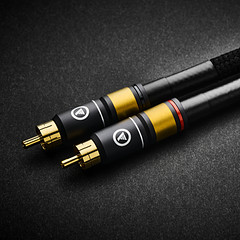 RCA C-MARC™
Cotton-clad true Litz • Whopping 2.3mm2 polarities
From
$
850
RCA C-MARC™
Cotton-clad true Litz • Whopping 2.3mm2 polarities
From
$
850
-
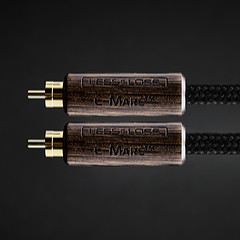 RCA C-MARC™ Entropic Process
Our finest RCA cable • Polished Wenge barrels
From
$
1428
RCA C-MARC™ Entropic Process
Our finest RCA cable • Polished Wenge barrels
From
$
1428
-
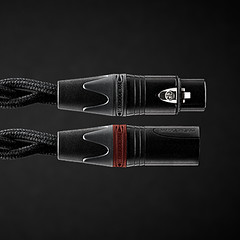 XLR C-MARC™
A hand-braided cotton-clad unique Litz construction
From
$
950
XLR C-MARC™
A hand-braided cotton-clad unique Litz construction
From
$
950
-
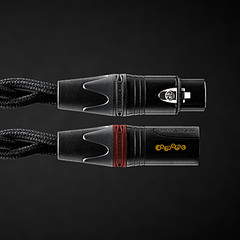 XLR C-MARC™ Entropic Process
Stratospheric performance for the audio connoisseur
From
$
1615
XLR C-MARC™ Entropic Process
Stratospheric performance for the audio connoisseur
From
$
1615
-
- Digital Cables
-
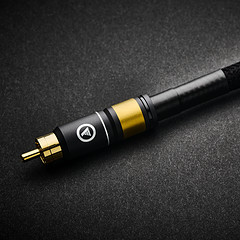 RCA Digital C-MARC™
Cotton-clad unique Litz design • Made only by LessLoss
From
$
510
RCA Digital C-MARC™
Cotton-clad unique Litz design • Made only by LessLoss
From
$
510
-
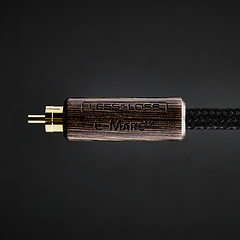 RCA Digital C-MARC™ Entropic Process
Possibly the most subtle digital cable on the planet
From
$
858
RCA Digital C-MARC™ Entropic Process
Possibly the most subtle digital cable on the planet
From
$
858
-
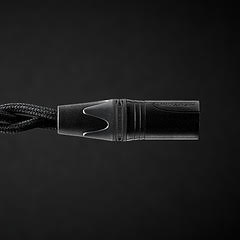 XLR Digital C-MARC™
Featuring a whopping 3 x 2.3mm2 Litz construction
From
$
570
XLR Digital C-MARC™
Featuring a whopping 3 x 2.3mm2 Litz construction
From
$
570
-
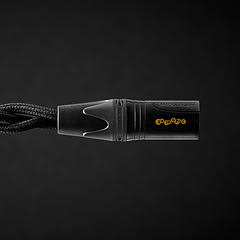 XLR Digital C-MARC™ Entropic Process
Stratospheric performance for the audio connoisseur
From
$
969
XLR Digital C-MARC™ Entropic Process
Stratospheric performance for the audio connoisseur
From
$
969
-
- Grounding Cables
- Bulk Wire and Cable
- Signal Conditioners
-
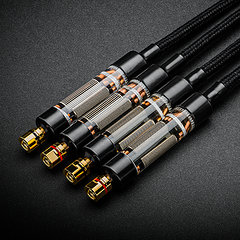 Firewall for Loudspeakers
Firewall for Loudspeakers
C-MARC™ Plug-and-Play Speaker signal conditioning like you've never imagined From $ 1656 -
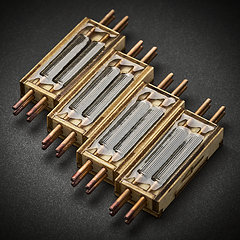 Firewall for Loudspeakers
Firewall for Loudspeakers
DIY version for Self-Installation For the Do-It-Yourself project enthusiast • Solder yourself From $ 800 -
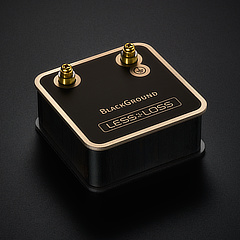 BlackGround DIY
Voltage-ground interface for a variety of applications
From
$
446
BlackGround DIY
Voltage-ground interface for a variety of applications
From
$
446
-
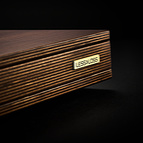 BlackGround 8x/10x Speaker Base
Plug-and-play loudspeaker signal conditioner
From
$
3096
BlackGround 8x/10x Speaker Base
Plug-and-play loudspeaker signal conditioner
From
$
3096
-
- Power Conditioners
-
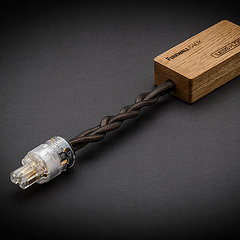 Firewall 640x
Plug-and-play solution for any powered gear
Firewall 640x
Plug-and-play solution for any powered gear
C-MARC™ Entropic Process and standard lead versions From $ 654 -
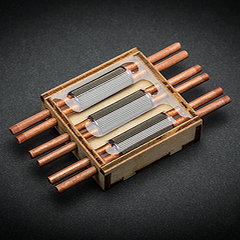 Firewall 640x DIY for Self-Installation
Self-solder and save!
From
$
320
Firewall 640x DIY for Self-Installation
Self-solder and save!
From
$
320
-
 BlackGround DIY
Voltage-ground interface for a variety of applications
From
$
446
BlackGround DIY
Voltage-ground interface for a variety of applications
From
$
446
-
 BlackGround 6x/10x Power Base
Plug-and-play power conditioner
From
$
2350
BlackGround 6x/10x Power Base
Plug-and-play power conditioner
From
$
2350
-
- Power Distributors
- Equipment Feet
- Field Conditioner
- DACs
- Power Cables
- Reviews
- This is definitely the cable to go for. It will almost literally blow your mind. – March 2012, Puresound Magazine
-
I was intrigued by the unanimously positive reviews garnered by these products ...
– by user Raymond Eye
Leaves you speechless
Sensational cables
BEST purchase I've made
Top notch performance
It's a steal
Musical... liquid... 3D
It's not subtle
More than an upgrade
Best I've heard so far
Stellar service
Sounds like a new system
Much more lifelike
Emotional flow
Overwhelming results
More dimensional
Sound is transformative
We were all astounded
Transformed my listening
Sounds so cohesive
Emotionally engaging
- Where to Start
- Free Newsletter
- Newsletter Archive
- B-Stock Alerts
- Shopping Tools
-
Shipping
- Free Shipping Learn about our international shipping policy
-
Return Options
Our satisfaction guarantee
and return policy -
Customs
UPS expedites local
customs clearance
-
Transaction
- Conditions of Sale Agreement for a smooth business transaction
- Privacy Policy We pledge to keep your information private
-
Terms of Use
Business policies
and agreements
-
Account
-
- Contact Us
-
Meet the Designers
-
- Care to share of your personal experience with our products? We'd be happy to post it!
- Want to learn more about our activities? Our Newsletter is both free and spam-free.
hi-res photos, brochures
logos, press releases, and
print-friendly PDF downloads. -
Contact Us
Connect with Us
-
